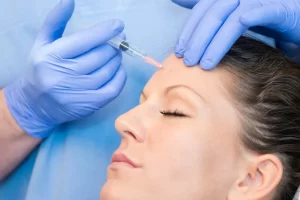
Image Credit: www.essentialdog.com.au
What is the Best Anti Itch Medicine for Dogs? There are anti itch meds for dogs and they can help with itching from allergies, infections or skin issues.
If your dog is itching, you need to figure out why. Common reasons include flea bites, dry skin, food or environmental allergies and infections.
There are different types of anti itch treatments out there including creams, sprays, oral meds and medicated shampoos.
The time it takes for your dog to feel better depends on the cause of the itching and the treatment.
Some dogs will start feeling better in a few days, others will take a couple of weeks.
Always consult with a vet to make sure you’re using the right medicine for your dog and the underlying cause of the itching.
You can buy anti-itch meds for dogs at pet stores, veterinary clinics and online at Amazon.
Some local pharmacies also carry meds for pets.
Always follow the instructions for application or administration to get the best results and avoid side effects.
If the itching doesn’t go away or gets worse, you should visit a vet as there may be a more serious issue with your dog.
Common Reasons for Itching in Dogs

Itching is your dog’s way of telling you something’s wrong.
Figuring out the cause can help you find the right treatment.
Let’s look at the common reasons:
1. Fleas and Ticks
Fleas are one of the most common reasons dogs itch.
If your dog has fleas, you’ll see small black spots (flea dirt) on their fur, especially around the tail area.
Ticks can also cause irritation and itching.
These pests are hard to spot but can make your dog scratch or bite their skin sometimes resulting in scabs or hair loss.
Flea infestations can be treated with flea preventatives like tablets, topical meds and collars.
2. Allergies
Your dog could be itching due to allergies which fall into two main categories:
- Environmental Allergies: Things like pollen, dust mites, mold or certain plants can make your dog’s skin itch.
- Food Allergies: Less common than environmental allergies but dogs can be allergic to certain food ingredients like beef, chicken or grains.
If you think allergies might be the culprit, keep track of when the scratching occurs. Does it happen after walks or when eating specific foods? That will give you a clue.
3. Hormones
Hormones affect your dog’s skin.
If your dog has a thyroid problem it can cause hair loss or skin infections that lead to itching.
Hormonal imbalances can cause dry skin, flaky patches or thinning fur.
4. Anxiety and Stress
Dogs that are anxious will scratch or chew their paws.
This is not an itch problem but a way your dog is coping with stress.
Sometimes it happens when they’re left alone for hours or there’s a lot of noise or change in their environment.
5. Pain or Injuries
Dogs scratch because of pain from an injury or underlying condition like arthritis.
They may focus on licking or chewing a specific spot to relieve discomfort.
Knowing the cause is key because the best flea medicine won’t help with an allergy or pain.
What is the Best Anti Itch Medicine for Dogs?

Now that we know what causes the itching, let’s talk about the medicines that will help with the relief.
There are several options based on what’s causing your dog’s itching.
1. Apoquel (Best for Chronic Itching)
Apoquel is a popular and highly recommended medication for dogs with chronic itching especially due to allergies.
It works by blocking the signals in your dog’s brain that make them scratch.
It can give your dog instant relief from itching and inflammation.
Most dogs tolerate Apoquel well with minimal side effects.
Good for long term use but always check with your vet to see if it’s right for your dog.
2. Cytopoint (Long Lasting Relief)
Cytopoint is another option for dogs with allergies or chronic itching.
Unlike Apoquel, Cytopoint is an injectable medication. It works by stopping the itching signals.
This injection lasts for several weeks, so less frequent treatments and long term relief.
Many dogs with ongoing itchy skin respond well to this treatment.
3. Flea and Tick Treatments (NexGard and Bravecto)
If fleas or ticks are the cause of the itching, products like NexGard and Bravecto are great options.
These chewable tablets kill fleas fast, give your dog relief.
They can also be used to treat ticks and prevent future infestations.
If your dog doesn’t like pills you can choose topical treatments, like spot-on treatments, to apply to your dog’s skin.
4. Medicated Shampoos
If your dog’s itching is mild or caused by a temporary irritation, medicated shampoos can help.
Shampoos with oatmeal, aloe vera or anti-itch ingredients like chlorhexidine can help relieve itching and calm your dog’s skin.
It’s a gentle option and can be part of your regular grooming routine.
Regular baths with mild, soothing shampoos can also wash away dirt, pollen and other allergens.
5. Steroids
For more serious itching, your vet may recommend steroids.
They work fast to reduce inflammation and itching.
But steroids have side effects, like increased hunger or thirst, and should only be used as a last resort or under strict vet supervision.
6. Antihistamines
Over the counter antihistamines, like Benadryl, can also help with itching from allergies.
These are good for mild allergies, but you should consult with your vet first to make sure you’re using the right dose and to rule out interactions with other meds.
Antihistamines are good if your dog’s itching is environmental allergy related.
I will encourage you to check a Simple Guide I wrote on how to administer Mange medicine to a Fox.
How to Choose the Right Anti Itch Treatment for Your Dog
The right anti-itch medicine depends on what’s causing the scratching.
Here’s how you can figure out which treatment is best for your dog:
1. Check for Fleas
Fleas are a common cause of itching, so use a flea comb and check for fleas, flea dirt or ticks in your dog’s fur.
If you find fleas, start your dog on a flea prevention like NexGard or Bravecto.
2. Look for Other Skin Changes
Look at your dog’s skin for signs of irritation, redness or swelling.
Are there bald spots or scabs? Is the itching constant or situational?
If you see anything unusual, it’s a good idea to consult a vet.
This will help the vet narrow down the cause and recommend the best treatment.
3. Visit the Vet
Always consult with your vet before giving your dog any kind of medicine.
Vets can diagnose and recommend flea treatments, allergy testing or prescription meds like Apoquel or Cytopoint if needed.
And make sure the itching isn’t from something more serious like a bacterial infection or pain.
How to Prevent Itching in Dogs
Preventing itching will save you from dealing with all the scratching.
Here’s how you can keep your dog’s skin healthy and itch free:
1. Flea and Tick Prevention
Use flea and tick preventatives like NexGard or Seresto collars to keep them away.
It’s better to stop fleas before they even start irritating your dog’s skin.
2. Regular Grooming and Baths
Bathe your dog with a mild, soothing shampoo every few weeks to remove allergens like pollen or dust that might be causing irritation.
Brush your dog regularly to remove loose fur and prevent flea infestations.
3. Clean Environment
Wash your dog’s bedding and vacuum your house to get rid of allergens and fleas.
Keeping your home and your dog’s living space clean will help with itchy skin.
4. Proper Food
Make sure your dog is eating a balanced diet.
Some food brands have ingredients that can cause allergies so switch to a high quality or limited ingredient diet if you think your dog has a food allergy.
5. Wipe Down After Walks
If your dog is exposed to allergens like pollen on walks, consider wiping them down after, especially their paws, belly and face.
When to Go to the Vet
If your dog’s itching doesn’t get better or gets worse with at home treatments, it’s time to go to the vet.
Scratching for more than a few days could mean a more serious problem like an infection or needs a stronger medication like Apoquel or Cytopoint.
Ignoring the itching could lead to secondary infections or more severe allergic reactions.
So if the itching lasts more than a few days, go to the vet.
Natural Remedies for Itchy Dogs
If you want to try natural remedies first, there are a few things you can try.
However these may only give temporary relief and not solve the underlying problem:
1. Coconut Oil
Coconut oil has anti-inflammatory and moisturizing properties.
Apply to the itchy spots on your dog’s skin to calm the irritation.
It’s a safe, natural way to soothe dry or irritated skin.
2. Aloe Vera
Pure aloe vera gel is great for cooling down your dog’s skin and reducing inflammation.
Apply directly to the affected areas to get relief from itching.
3. Chamomile Tea
Chamomile tea can calm irritated skin.
Brew it, let it cool and spray it onto your dog’s itchy areas to reduce itching and inflammation.
These remedies are good for mild cases but if it’s severe, always go to the vet.
Early Treatment is Key
Ignoring itching can lead to long term skin issues like infections, hair loss or worsening stress for your dog.
The sooner you address your dog’s discomfort the better chance you have of resolving the issue quickly and preventing complications.
Conclusion
So what is the best anti itch medicine for dogs? It depends on what’s causing the itching.
Apoquel and Cytopoint are good for long term relief from allergies, NexGard and Bravecto for flea issues, medicated shampoos and steroids for temporary relief and natural remedies may work too.
Always go to the vet for a proper diagnosis and treatment plan especially for chronic or severe itching.
Prevention, regular grooming and using the right treatments will keep your dog itch free and happy.
FAQs
What else can cause itching in dogs besides fleas?
Besides fleas, itching in dogs can be caused by several other things. Common culprits include allergies (environmental or food), dry skin, skin infections (fungal or bacterial), and contact irritants like shampoos or detergents. Hormonal imbalances or parasites like mites or ticks can also cause itching.
How do I know if my dog has a food allergy causing itching?
Food allergies cause itching, especially around the face, ears, paws or bottom. Signs may include chronic ear infections, paw licking, red or inflamed skin and gastrointestinal issues like vomiting or diarrhea. A food allergy is usually diagnosed through an elimination diet or by a vet.
Are there long term side effects of Apoquel for dogs?
Apoquel is used to treat itching but long term use can cause side effects such as increased risk of infections, digestive issues or changes in liver function. It can also affect the immune system and may cause healing problems. Consult your vet for proper use and monitoring.
What are the best flea treatments for dogs?
Best flea treatments for dogs are topical treatments (like Frontline or Advantage), oral meds (Nexgard or Simparica), flea collars and flea shampoos. Your vet can advise the best treatment for your dog’s age, weight and health conditions.
Can coconut oil help my dog’s skin irritation?
Yes, coconut oil can help soothe your dog’s skin irritation. Its antibacterial and anti-inflammatory properties can calm itching and help wounds heal. Apply a small amount to the affected area but always monitor for allergic reactions. Start with a patch test on a small area of skin.
When should I use a steroid for my dog’s itching?
Steroids like prednisone are for severe or chronic itching that doesn’t improve with other treatments. But they’re usually used short term to avoid side effects. Consult your vet for advice on if and when steroid treatment is needed for your dog’s condition.
How do I use topical anti itch treatments?
Topical anti itch treatments (sprays or creams) should be applied directly to the affected skin areas. Clean the skin first to remove dirt and debris. Follow the product’s instructions and apply only to the areas your dog is scratching. Monitor for any reactions.
REFERENCE:
joiipetcare.com/health-conditions/dog/anti-itch-medication
fairhavenvet.com/antihistamines-for-skin-allergies-in-dogs
skoutshonor.com/collections/itch-relief-for-dogs-cats
I’m Edidiong Ekpo, a recommended and experienced SEO content writer.
I have been dedicated to writing well-researched health articles to educate the general public in rural and urban areas, with tips, suggestions, and advice on health challenges.
All of my content goes through a review by the CEO of pharmafoodhealth.com – a professional medical lab scientist before publication.






